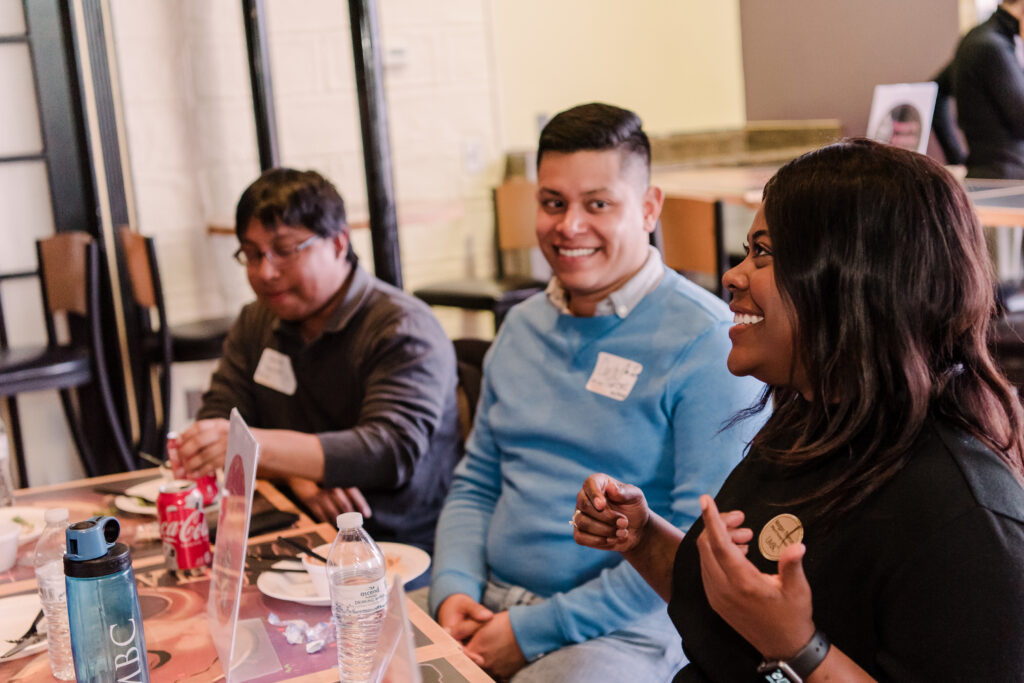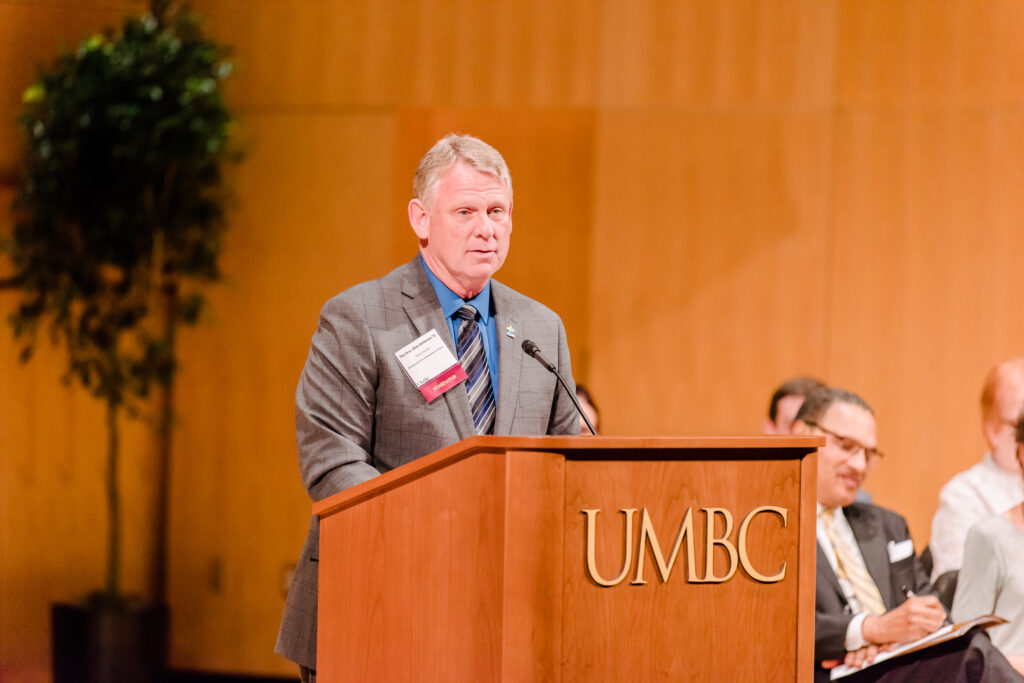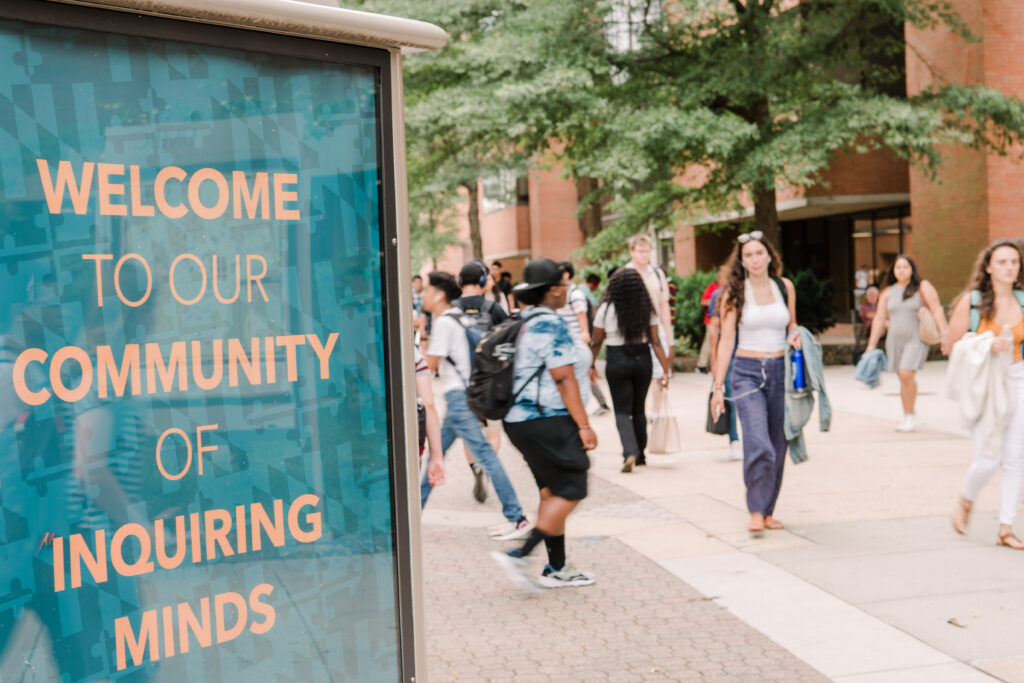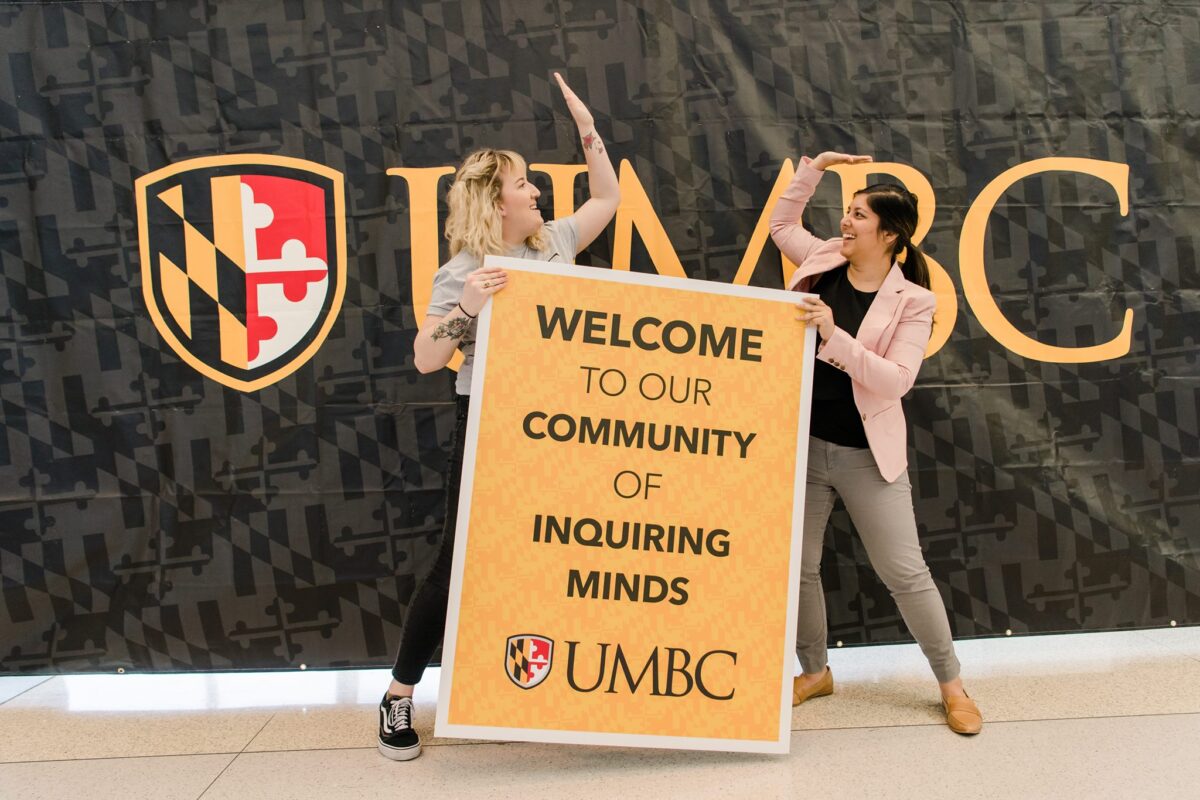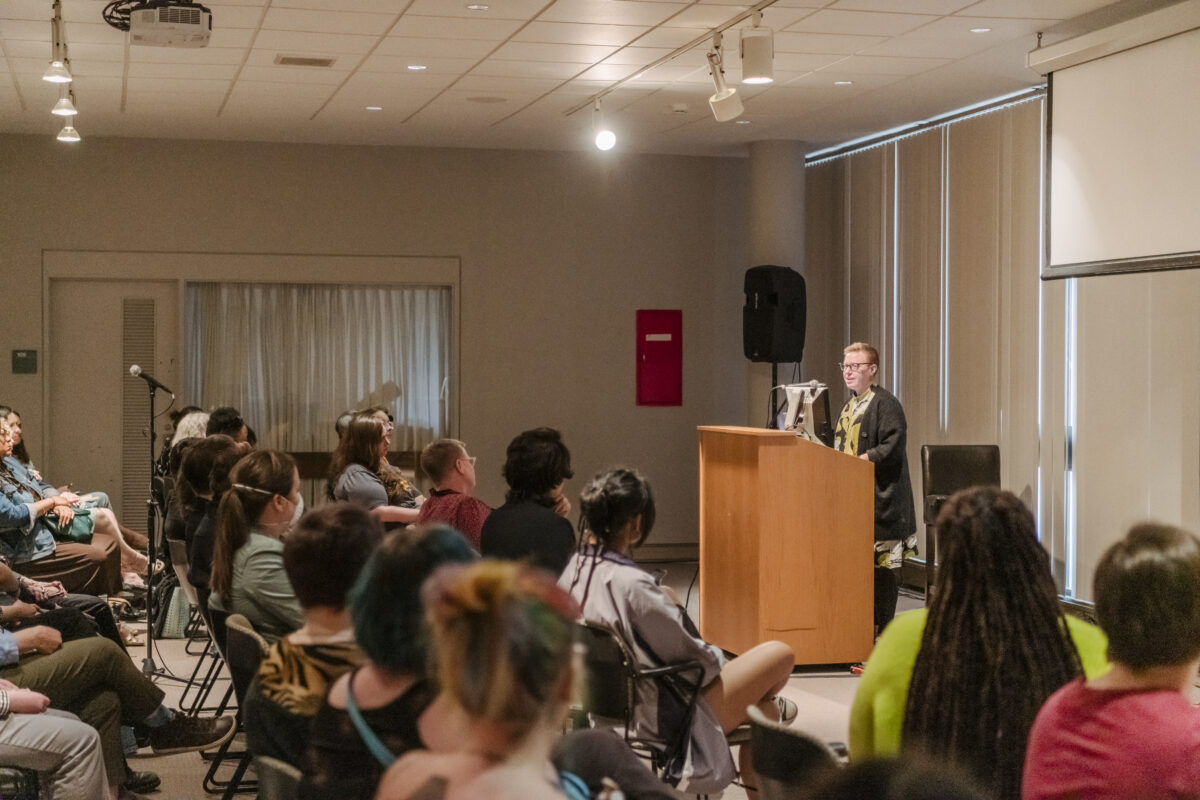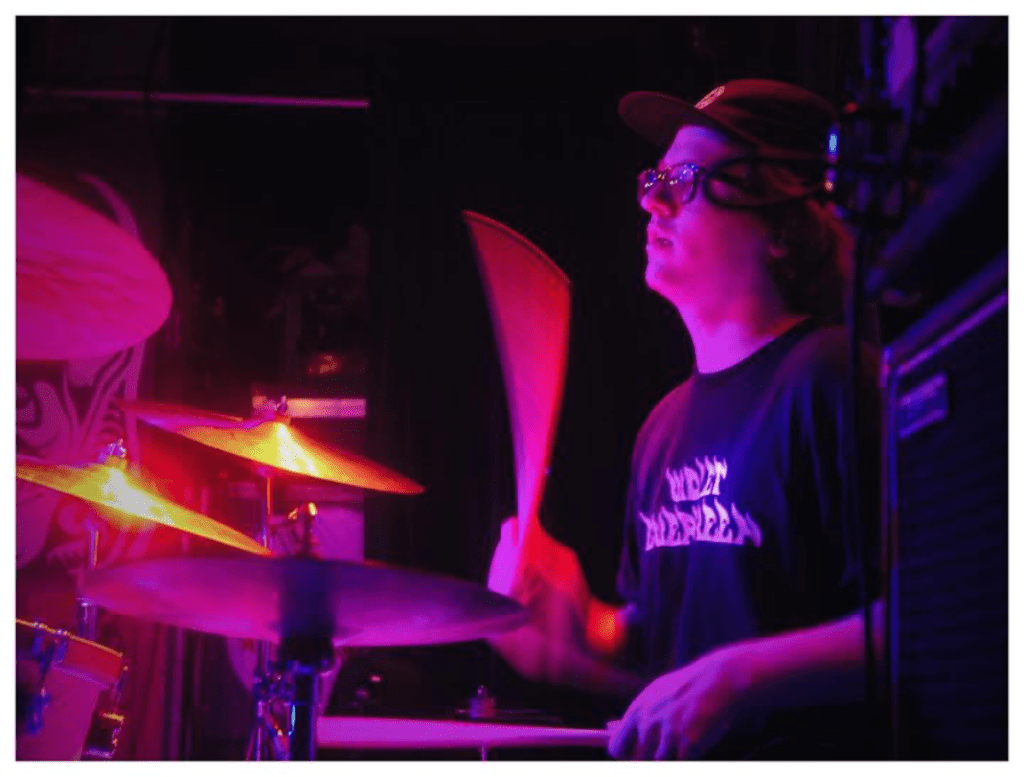At a time when many in our nation are struggling with how best to engage in discussion along ideological divides, members of UMBC’s community came together this week to think about ways of balancing their shared commitments to free speech and equity and inclusion.
The latest in UMBC’s virtual community gatherings series, The Empowered University: Balancing Inclusion & Free Speech, featured community experts in law, government, and education, including several alumni.
“As a university, we’re continually balancing our shared commitments to equity and inclusion with our commitment to individual’s right to free speech,” said Kathy Ibitoye ’15, financial economics, a civil rights investigator with UMBC’s Office of Equity and Inclusion. “We hope that as a community to get a better understanding of how to look at free speech, how to continue to create and maintain inclusive environments, and how to engage in dialogue when speech has a harmful impact on another individual.”
Student moderators Tirzah Kahn ’21, information systems, and Zachary Kay ’22, history, shared questions suggested by participants with the panelists, beginning with the deceptively simple question: What is free speech? Morgan Thomas ’13, political science, an attorney in UMBC’s Office of General Council, gave an overview of the laws protecting free speech and then zoomed in on how the UMBC community fits into the picture.
“Public institutions such as UMBC are required to protect the freedom of speech of its community members, which in many cases works well to advance academic inquiry, knowledge, and thoughtful discussion from inquisitive minds of all backgrounds,” she said. “All of which is important for the educational, professional, and personal enrichment of the campus community.”
Learning to listen
Allan Kittleman ’81, political science, former County Executive for Howard County, and a Maryland Workers’ Compensation Commissioner, spoke to the question of how best to create spaces that encourage learning, understanding, and productive respectful dialogue. After years in politics, he said the first and most important thing to do is to listen and try carefully to understand the other person’s perspective before responding.
“We need to make sure that we look at things and find out what’s true, what’s not true,” he said. “Not jumping the gun, and making sure we investigate things…I think listening is where it starts, but then we also have to have a dialogue and we have to have it respectfully even with people we don’t agree with.”
“It doesn’t help to listen if you’re not willing to hear,” he said, after sharing a real life example of having his mind changed by a member of the opposite political party. “That’s why we have two ears and one mouth – so, we get to hear more than we talk, listen more than we talk. And so that’s, I think, the best way we can create space.”
Inclusive learning spaces
Susan Sterett, professor of public policy, shared her perspectives on how to create engaging spaces for inclusive dialogue in the classroom, including setting expectations for civil behavior early on.
“Setting some ground rules, having some faith that we can listen to each other, and recognizing that we don’t learn things that we always want to learn, are all really important points,” she said.
Among the more than 170 event participants were many students, faculty, and staff who also shared their thoughts and questions in the chat. Some pondered ways of expressing themselves while also considering the feelings of their classmates, and how to be effective allies in general.
Event panelists also shared information about a number of campus organizations focused on free speech and inclusion issues, and urged folks to take advantage of the tools and forums they provide.
Practicing core values
Being able to keep the doors open for productive conversation is an important part of any university community—and a core value at UMBC, said President Freeman Hrabowski, quoting Phi Beta Kappa head Frederick Lawrence.
“He says that ‘The purpose of a liberal education is to teach people to be able to think critically and to communicate with clarity, and to be able to…present our arguments and base those arguments on facts and evidence,’” said Hrabowski.
“And secondly, to be able to listen carefully to other points of view that may differ wildly from my own. And to breathe deeply and to listen. And then to work on ways of having debate that can lead to a clearer understanding of the common ground and most important to seeking the truth.”
For more information about future UMBC Virtual Community Gatherings, visit umbc.edu/together.
*****
Header image of The Forum in front of the Performing Arts & Humanities Building by Marlayna Demond ’11, taken in 2018.


